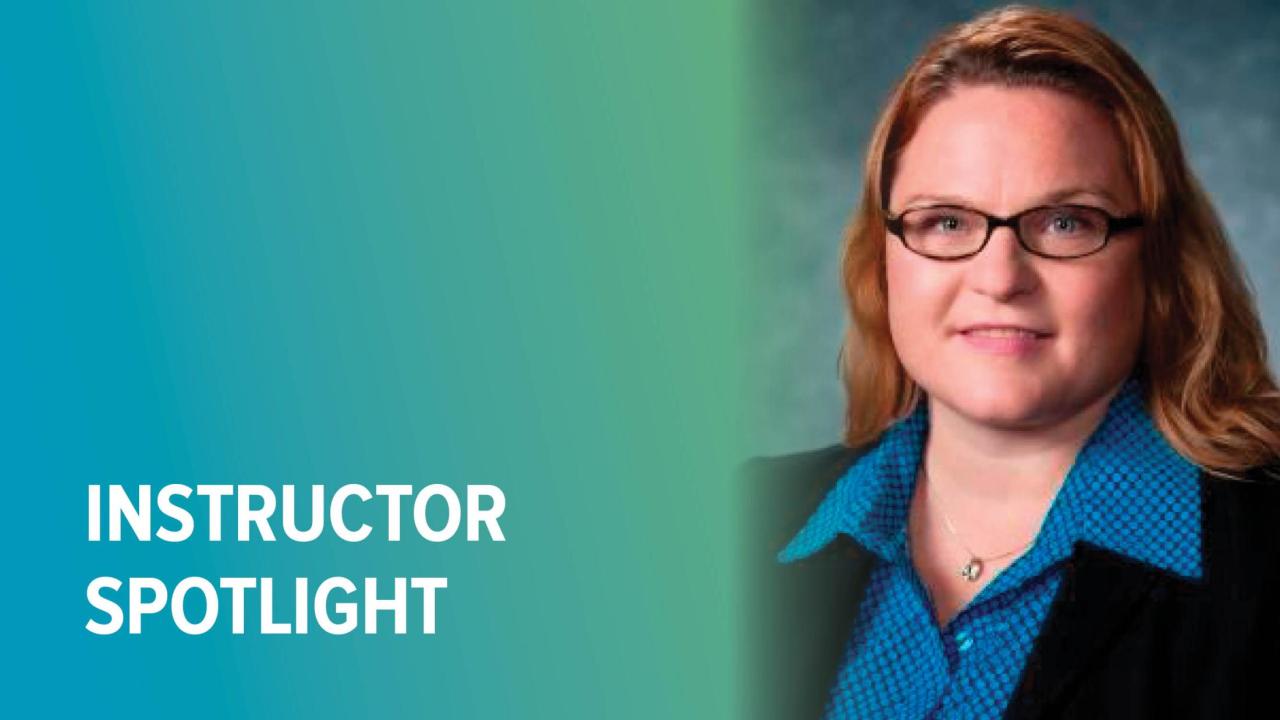
Instructor Spotlight: Emily Doringer
An alumna of the UC Davis School of Law, Emily E. Doringer is a senior associate at Segal & Associates in Sacramento, California, and an instructor in UC Davis Continuing and Professional Education’s Paralegal Studies Certificate Program. Since 2003, her work has focused exclusively on criminal defense and her current practice involves both federal- and state-level work, as well as appellate defense.
How did you become interested in the legal field?
After working for a couple of years as a civil litigator, I moved to the Sacramento area and landed a job at a defense firm that handled only criminal defense. I quickly realized that criminal defense is the ideal type of work for me. I appreciate the significance of protecting and preserving the rights of the individual, against the vastly more powerful and well-funded resources of the government. It feels like very important and valuable work.
Why do you teach?
I have always enjoyed the process of learning and teaching. One of the great things about my job is that I am constantly learning, depending on the subject matter of the case at hand—anything from mass spectrometry and chemical analysis, to medical procedures and real estate development—it's truly limitless. While I love to learn, I also like to share what I’ve learned with others. In college, I worked as a tutor and teaching assistant, and some of the work I have done as a criminal defense attorney (involving racial bias in grand jury selection) has led to the opportunity to present to UC Davis undergraduate classes. Becoming a paralegal studies instructor was a natural fit.
What is your teaching style?
When I teach, I like to explain the full underlying context and give a comprehensive view of the subject because when I learn things, I want to know not just the right answer, but the full background on why something is the right answer. I think my teaching style reflects this goal of guiding others to a fuller understanding of the subject matter.
Law undoubtedly touches upon every aspect of society. As a result, so does the practice of law, which makes it both complicated and fascinating.
What do you want students to take away from your course?
I hope that students will gain familiarity with the legal system in general and some details on the specifics of what it is that lawyers do. When the law is portrayed in media, there is often an emphasis on the more cliché, dramatic aspects—courtroom trials and emotionally charged proceedings. In reality, there is so much going on “behind the scenes” that doesn’t get as much exposure. However, that behind-the-scenes work is where most of the excitement and interesting twists and turns occur. I think an education in paralegal studies is a window into the true nature of legal work.
How can paralegal training positively impact a student’s career?
Paralegals are invaluable in assisting attorneys with absorbing, synthesizing and analyzing a large amount of information, and distilling it down to its core meaning and significance for the case. Learning this skill set helps students become more analytical, organized and—ideally—more curious also. Gaining these paralegal skills is preparation for work in a legal setting and can also be a step on the path to studying criminal justice or even law school. No matter what students might choose to do in their careers, learning the skill set of a paralegal is valuable in any work setting.
What jobs or career advancement opportunities are available to those with a paralegal education?
Join the Paralegal Industry
Acquire the knowledge you need to enter the paralegal profession through our acclaimed Paralegal Studies Certificate Program, offered online every quarter. Enroll today!
Private law firms employ paralegals to assist in their day-to-day work, as do public government agencies. California courts at all levels employ paralegals who assist court staff attorneys in handling complex litigation matters heard by the state’s judiciary. Federal courts and agencies operate in much the same manner, and also rely on the professional help of paralegals as part of the court legal staff that assists judges.
What’s trending in the legal field that students should be aware of?
E-discovery is continuously changing and evolving as individuals, businesses, public agencies and other organizations increasingly rely on electronic data storage and management in everyday life. The use of email communications, cell phones, internet and other electronic communications systems creates a large amount of electronically stored data that can become potentially relevant to either civil or criminal litigation. The effective location, retrieval and management of that voluminous data is a critical part of what lawyers and paralegals do in almost every case.
